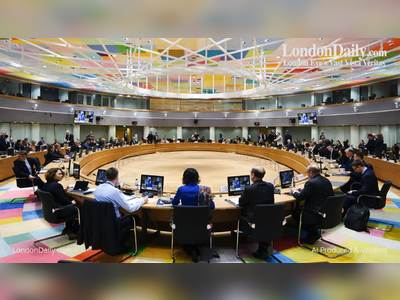Robot Dog Patrol Sparks Misinformation Over Migrant “Luxury Hotel” in UK
Footage of robotic canine in Crewe compound misrepresented as guarding a migrant facility, when actually part of religious group’s internal security
Footage of a robotic dog patrolling Webb House in Crewe, Cheshire — a Grade II listed former orphanage now occupied by the Ahmadi Religion of Peace and Light — has circulated online, misleading audiences into believing it guards a “luxury migrant hotel”.
In fact, the patrols form part of internal security measures by the community following threats and external scrutiny.
The Ahmadi group moved into Webb House in 2021, acquiring the site for around £2 million.
Since then, it has been the subject of local controversy over homeschooling practices, asset management, and public perception.
The community says it adopted security enhancements, including robotic surveillance and guard animals, in response to real threats and harassment directed at its members.
Community leader Abdullah Hashem has defended the security apparatus as lawful and necessary.
He says the measures protect members against extremist attacks, including past statements by religious hardliners threatening violence.
The group reports that local authorities and police have been engaged over threats made against them.
Public documents show that the group applied to erect a two-metre security fence around the property, citing increased hostility.
Nearby residents objected, particularly to the proposed replacement of historic railings surrounding the listed building.
In recent weeks, clips of the robotic device roaming the compound were shared on social media platforms, along with commentary mischaracterising the site as a migrant detention or “luxury asylum hotel”.
Fact-checkers and local reporting have since clarified that the building is owned and occupied by the Ahmadi religious community, not a government migrant accommodation site.
The misattribution illustrates how AI surveillance imagery and sensational framing can fuel disinformation narratives in migration debates.
Across the UK, law enforcement agencies and private security firms are increasingly deploying quadruped robots for patrols in challenging environments.
The rise of such technology amplifies both public interest and susceptibility to misinterpretation when context is omitted.
The Crewe case spotlights the intersection between religious communities, public safety, social media narratives, and the evolving use of robotic security tools in civic life.
In fact, the patrols form part of internal security measures by the community following threats and external scrutiny.
The Ahmadi group moved into Webb House in 2021, acquiring the site for around £2 million.
Since then, it has been the subject of local controversy over homeschooling practices, asset management, and public perception.
The community says it adopted security enhancements, including robotic surveillance and guard animals, in response to real threats and harassment directed at its members.
Community leader Abdullah Hashem has defended the security apparatus as lawful and necessary.
He says the measures protect members against extremist attacks, including past statements by religious hardliners threatening violence.
The group reports that local authorities and police have been engaged over threats made against them.
Public documents show that the group applied to erect a two-metre security fence around the property, citing increased hostility.
Nearby residents objected, particularly to the proposed replacement of historic railings surrounding the listed building.
In recent weeks, clips of the robotic device roaming the compound were shared on social media platforms, along with commentary mischaracterising the site as a migrant detention or “luxury asylum hotel”.
Fact-checkers and local reporting have since clarified that the building is owned and occupied by the Ahmadi religious community, not a government migrant accommodation site.
The misattribution illustrates how AI surveillance imagery and sensational framing can fuel disinformation narratives in migration debates.
Across the UK, law enforcement agencies and private security firms are increasingly deploying quadruped robots for patrols in challenging environments.
The rise of such technology amplifies both public interest and susceptibility to misinterpretation when context is omitted.
The Crewe case spotlights the intersection between religious communities, public safety, social media narratives, and the evolving use of robotic security tools in civic life.










